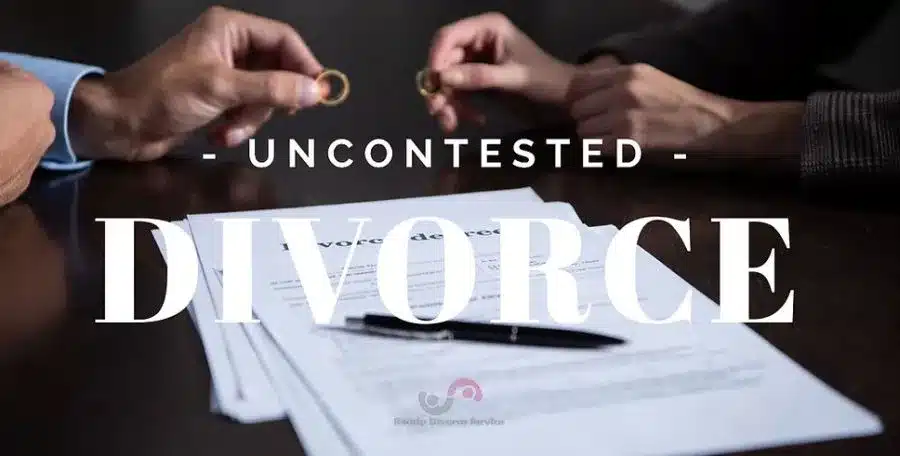Has your marriage become the most stressful thing you have ever done? It may be time for you to get a divorce. You’ve tried everything you can to keep the relationship between you and your spouse strong, but now it’s time to end the marriage efficiently to save yourself from further stress. Keep reading to find out how the Texas divorce process works.
1. Residency Requirements & Petition
To file for divorce, one of you must have lived in Texas for at least six months at the time you file. Make sure that you file in the county that someone has lived in for at least 90 days, as required by law. Fill out a petition with the courthouse clerk to request a divorce and be sure to make at least two copies of all paperwork so that you may serve your spouse later.
2. Understanding the Grounds for Divorce
Texas has seven specific reasons for divorce, and you’ll need to prove at least one of them to have a judge legally end your marriage. The reasons are as follows:
- Insupportability, which means that the marriage has failed, and you know you cannot reconcile the relationship.
- Cruelty, or any form of domestic abuse or harassment against you by your spouse.
- Adultery, in which case your spouse has had sexual intercourse with a third party.
- Your spouse has been convicted of a felony.
- Desertion or abandonment in which your spouse left you for at least one year.
- You are no longer living together and have not lived together for at least three years.
- Your spouse is residing in a mental facility and has for the last three years. It is also required that this spouse will not be able to fully recover their mental faculties.
Texas law allows for an annulment, or recognition that the marriage never happened. To get an annulment, you’ll need to prove that you were incapable of consenting to the marriage for some reason such as being incapacitated at the time of the ceremony.

3. File for Divorce
You can either file for a contested or uncontested divorce: contested divorce means that one of you does not agree with the other spouse over how to split finances, custody, assets, etc. and an uncontested divorce is a faster route to completion, but you both must agree on how to settle everything shared between the two of you. If you cannot afford to pay for your divorce in Texas, you can also file at this time to have your fees waived by the court. Bring all divorce paperwork to the county courthouse clerk in the county mentioned above. Again, make sure that you have at least two copies of all divorce paperwork.
4. Serve the Papers to Your Spouse
If your spouse will consent to sign a notarized document saying they received the divorce papers, you can just bring the papers to them. This is the quickest way to continue with your divorce. If not, you’ll have to ask a law enforcement officer or a process server, a person unrelated to the divorce that is at least 18 years old, to bring the paperwork to your spouse. If you are unable to reach your spouse in this manner, you can ask the court for permission to send the documentation in another manner, such as by email, or publicly print the information in a local newspaper.
If your spouse doesn’t respond to your serving documents in 20 days, you may be able to pursue a default divorce. This could be beneficial for you, as you will not have to show proof of all your personal information that would normally be required of a normal divorce. There are couples in Texas who agree to do this method of divorce beforehand because of the guarantee of privacy.
5. Get Through the Mandatory Waiting Period
You must legally wait 60 days from the date you filed your paperwork until the court hearing if you need to have a hearing or trial. If you are not having a default divorce, you and your spouse will need to gather all financial and property information for the judge. Whether contested or uncontested, both spouses are required to show their personal information to ensure that nobody is hiding anything that they may want to keep from the other.
6. Attend Your Divorce Hearing and Finalize the Divorce
When you are expected to show up in court, show up prepared for anything. Dress professionally, show up early, and be prepared to take notes. Have all of your information ready for reference later, and don’t speak unless you are told to by the judge. If your spouse says something horrible or embarrassing, try not to react in the courtroom. Calmly answer all questions and make sure that you ask any questions you may have before you exit the courtroom.
Once the divorce is finalized, you and your spouse must take the time to divide up all assets, follow the custody agreement, and everything else the judge has ordered. If you are awarded primary physical custody of the children, the judge may require you to stay in the state or a specific county after the divorce.
Get help with divorce: Texas Uncontested Divorce
Frequently Asked Questions
If your child was born in Texas and lived there for at least six months or lived in Texas for a long time and has been gone for less than six months, then the Texas judge can still make a decision. It is best to contact a lawyer if you need more information on Texas jurisdiction.
In an emergency, always call 911. If you’re worried about how your spouse will react to the divorce, you do have some options for assistance as well. The National Domestic Violence hotline can be called 24 hours a day. Similarly, you can call the Refugee and Immigrant Center for Education and Legal Services (RAICES) if you are an immigrant.
No, a lawyer is not required, but if you are having any difficulty with your divorce, whether it’s a contested divorce or your spouse may be abusive, please get a lawyer. There are free legal resources to be found online, and you don’t want your divorce to end in a way that could harm you or your child(ren).
No, in Texas you both have fair rights to all assets, child custody decisions, and debts. If the judge has to make the final decision, they will do their best to ensure that it is in the best interests of all parties involved.
If you and your spouse can agree on who keeps the house, then you can decide. Otherwise, the judge will have to make the final decision based on what’s best for you and any children that you may have. It is also only up to the judge (with a court order) who has to leave, so do not attempt to force your spouse out of the house, and they do not have the right to make you leave either
No, Texas is one of the states that doesn’t favor the first to file.
Sources
- Cordell & Cordell. (2021, December 10). Texas divorce laws – divorce in Texas FAQ. Cordell & Cordell. Retrieved February 6, 2022, from https://cordellcordell.com/resources/texas/texas-divorce-questions
- Gjelten, E. A. (2021, December 22). How do I file for divorce in Texas. www.divorcenet.com. Retrieved February 6, 2022, from https://www.divorcenet.com/resources/filing-for-divorce/texas.htm
- Guillen, L. (2013, May 30). The Pros and cons of a default divorce. www.divorcenet.com. Retrieved February 6, 2022, from https://www.divorcenet.com/resources/divorce/types-divorce/guide-default-divorce
- National Network to End Domestic Violence, Inc. (2021, December 26). Divorce. WomensLaw.org. Retrieved February 6, 2022, from https://www.womenslaw.org/laws/tx/divorce
- Payet, L. (2018, December 11). How to file for divorce by myself in Texas. LegalZoom. Retrieved February 6, 2022, from https://info.legalzoom.com/article/how-file-divorce-myself-texas
- Texas Legal Services Center. (2021, December 1). I need a divorce. we have children under 18. I need a divorce. We have children under 18. | Texas Law Help. Retrieved February 6, 2022, from https://texaslawhelp.org/guide/i-need-a-divorce-we-have-children-under-18/?toggle=8






Cool Stuff